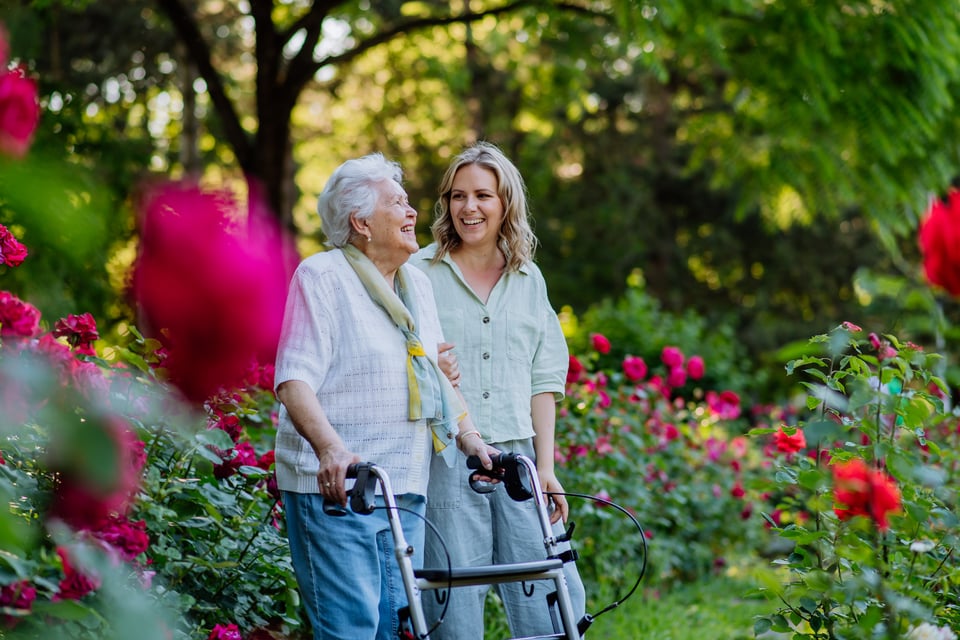Home is more than just a building. It’s where memories are made, providing a source of security during times of uncertainty and change. It’s no wonder most older adults say they want to stay at home as long as possible.
For many families, the decision to stay at home can be challenging. You may have a hard time caring for your loved one, managing other responsibilities, and finding time for self-care. There may be family conflict about how best to meet your loved one’s needs.
Caregiving doesn’t have to feel so frustrating. WesleyLife At-Home senior services can support you and your loved one, offering a break, compassionate support, and a better quality of life for everyone. Here are four ways the right at-home senior care can ease the challenges of caregiving:
Maintain Independence at Home
Many families are reluctant to bring in outside help because they worry doing so will undermine their loved one’s independence. The opposite is true. The right support helps adults stay healthy and independent longer.
When your loved one doesn’t have to worry about activities of daily living, they may feel a renewed sense of purpose and hope. They may also feel more comfortable receiving support from a professional caregiver rather than from family. Your loved one can ask for what they need without feeling like they are being a burden or losing their privacy. Also, access to consistent care lends a sense of predictability to daily life, helping your entire family settle into a more comfortable routine.
Prevent Injuries
Your loved one deserves a lifetime of wellness. And yet, osteoporosis, mobility issues, chronic pain, vision problems, and other common challenges put many older adults at a higher risk of falling. Falls are a leading cause of disability and long-term injuries in aging adults. Reducing fall risk is critical to improving long-term health and well-being.
At-home senior care can keep your loved one from risking their health to perform activities of daily living, helping them avoid falls or other injuries. We can even help you assess injury risk and determine which services might be best with a home assessment.
Stay Physically and Emotionally Active
Everyone deserves to live a full, enriched life, however they define it. As your loved one ages, it’s easy for them to feel isolated, especially if they depend on family to provide care and transportation.
At-home support offers meaningful connections with caring people. This can make your loved one feel more connected. The right care team can also help your loved one be more physically confident. Over time, this can encourage healthy habits such as exercising, walking, and spending time outdoors, all of which improve quality of life and health. For example, an at-home aide can help your loved one walk their dog, restoring a sense of normalcy and adding a new way to enjoy daily physical activity.
Restore Balance in Family Relationships
Caregiving is emotionally and physically taxing work. You may feel like what you’re doing is never enough and struggle to fill many different roles simultaneously. Some families feel ongoing stress over how best to support aging relatives. In others, the caregiving work falls exclusively to one exhausted family member.
Bringing in outside help can restore a sense of balance. Your loved one may appreciate no longer having to lean solely on family for support, potentially improving your relationship. By reducing caregiver stress, you can also improve your own health, gain time for self-care, and more fully enjoy time spent with your loved one.
At-Home Senior Care: Supporting Families
No one can do it all alone. With at-home senior care, you don’t have to.
It’s never too early to ask for help. If you think your family could use some assistance, check out this free, 4-5 minute at-home needs assessment for information about how at-home services can help you and your loved one.





